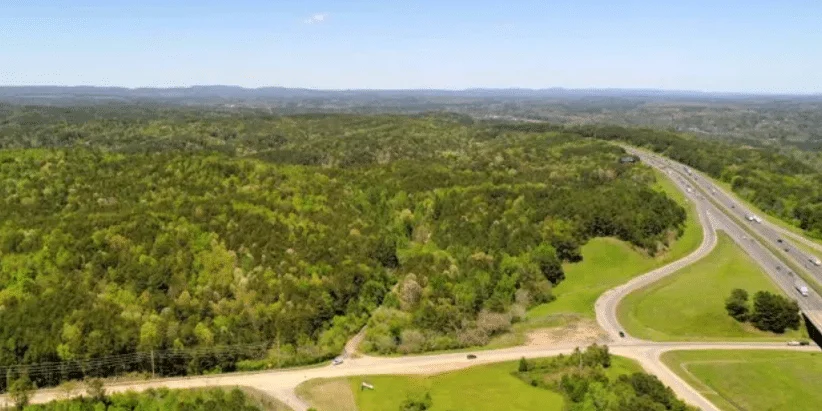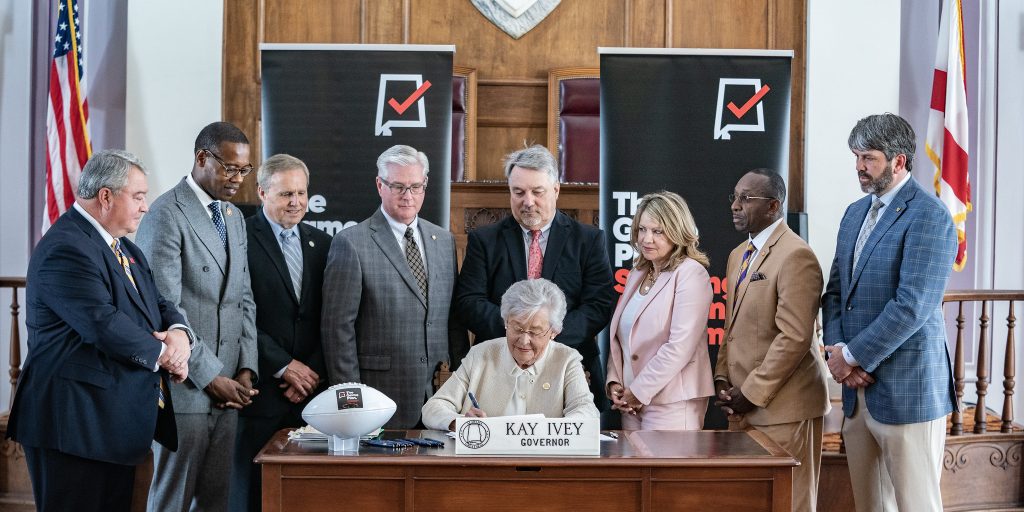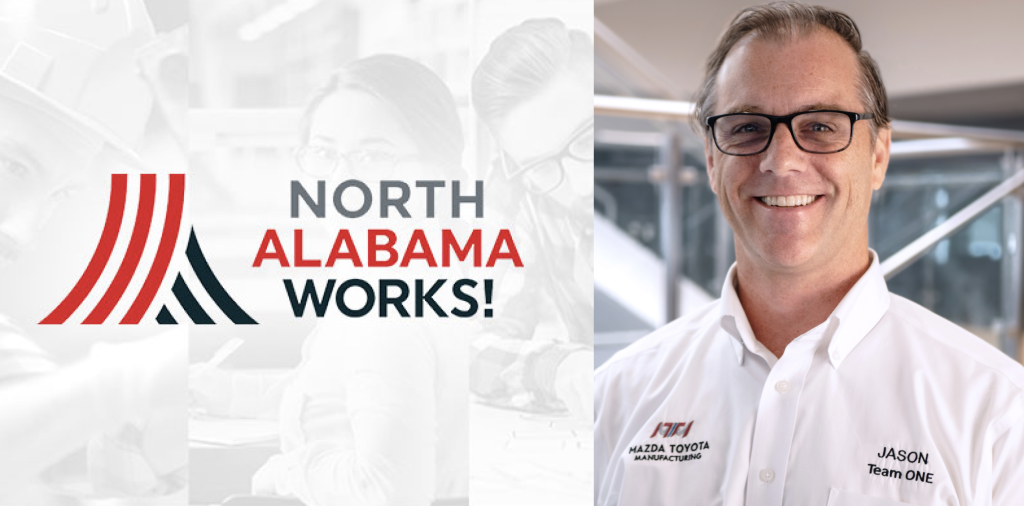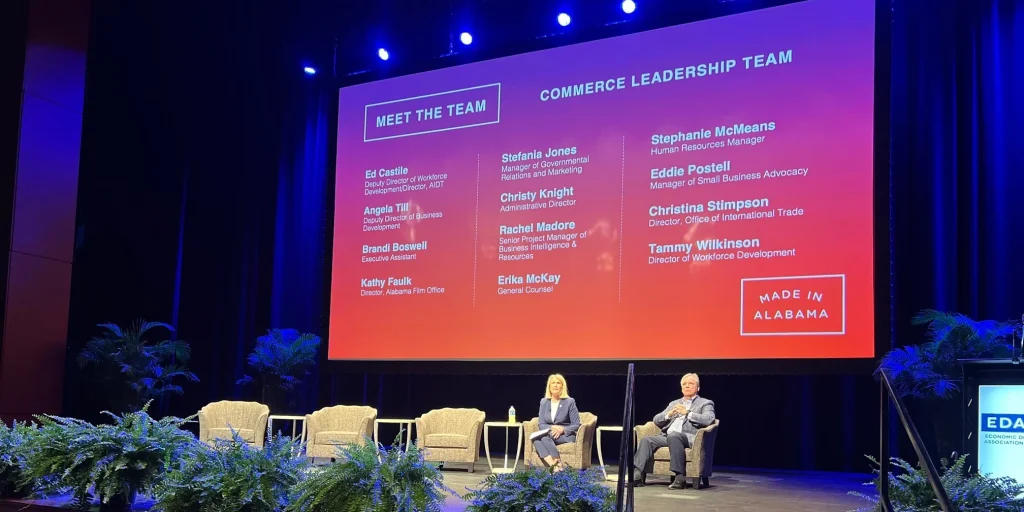The $1.6 billion Mazda-Toyota Manufacturing U.S.A. plant hasn’t even broken ground yet in Huntsville but is already having an impact.
“This is a transformational project for north Alabama because of the sheer magnitude of what Mazda and Toyota are combining to do,” said Alabama Commerce Secretary Greg Canfield. “This is a major automotive manufacturing facility, manned by 4,000 workers, and serviced by a constellation of suppliers, many of them new and located nearby. The economic impact will be massive and long-lasting. We know this because we have seen it play out before.”
It began with Mercedes-Benz U.S. International in Tuscaloosa County more than two decades ago, spawning dozens of supplier companies, hundreds of vendors and seeding an automotive industry in the state. Other seeds would come from Honda Manufacturing of Alabama in 1999 in Lincoln and Hyundai Motor Manufacturing of Alabama in 2005 in Montgomery.
Those automakers produced more than 1 million vehicles last year. The state now has nearly 40,000 people working in auto, engine and motor parts manufacturing, earning an average of $70,680 per year.
Alabama was in the running for other auto plants that ended up in other states, such as Nissan and Toyota in Mississippi and Volkswagen in Tennessee. Volkswagen considered the same site that Mazda-Toyota chose.
What Alabama has never seen before is a joint plant between two automakers.
“One thing that makes this project unusual is the alliance between Mazda and Toyota,” Canfield said. “While Toyota has a vast manufacturing footprint in the United States, including Alabama, Mazda is a newcomer. Much of its supply chain will need to be built out, and that will need to happen relatively quickly.”
Officials said the groundwork for new suppliers is underway.
“We can certainly expect to see the location of new, tier one suppliers that will produce components for Toyota and Mazda,” said Steve Sewell, executive vice president of the Economic Development Partnership of Alabama. “Economic developers in the state are targeting those suppliers and we’re already getting inquiries from companies and site consultants.”
Existing suppliers are eager to work with the newcomers to the state.
“Because we now have a well-developed auto supplier network in the state, it’s likely that a number of existing companies will receive contracts, which translates into expansion and job growth at their plants,” Sewell said.
The mayor of Jasper celebrated the grand opening of a supplier of other automakers this week but was quick to note the industrial park is preparing a new site that would be a nice home for a Mazda-Toyota supplier.
“We feel certain that we’re in a position to attract suppliers to that plant,” Mayor David O’Mary said at the Yorozu Automotive Alabama grand opening.
That kind of buzz in communities miles away is what makes auto plants so attractive.
“Mazda-Toyota is a reminder of why an auto manufacturer is still considered such a prize in economic development; in addition to the thousands of direct jobs at the plant, there are investments from suppliers and the jobs they bring and the opportunity for existing companies to do business with the new plant,” Sewell said.
Claire Aiello, marketing and communications director with the Huntsville-Madison County Chamber of Commerce, said the Rocket City is abuzz over what’s coming.
“We are thrilled about what the Mazda-Toyota joint venture will bring to Huntsville and the surrounding area for years to come,” she said. “Supplier companies are buzzing with excitement on the potential for increased business, and we all look forward to seeing activity begin very soon as the construction process unfolds.”
Canfield said as production ramps up, so will the economic impact.
“The high volume of production at Mazda-Toyota Manufacturing USA calls for massive supply chain needs,” he said. “We anticipate that new suppliers will want to come to Alabama and the region to service a facility producing 300,000 vehicles annually. It will also likely mean additional business for suppliers in the state, particularly those already working with Toyota. For Alabama, this will mean our auto supply chain will continue to expand with new and expanded facilities, additional jobs and new capabilities.”
Canfield said much of the work with Mazda-Toyota prior to breaking ground on the plant has centered on suppliers.
“As you can imagine, a project of this scale involves intricate planning,” he said. “Among potential suppliers, preliminary activity is already getting underway. Our team will work with the automakers to help them coordinate their supply chain and position that network where it needs to be for vital just-in-time deliveries. Some of those talks have already begun, and we expect more in the future.”
Sewell said a project the size of Mazda-Toyota sends economic ripples beyond suppliers.
“In addition to component suppliers, Mazda-Toyota Manufacturing could also have a significant impact on Alabama’s ability to attract other companies that do business with the auto industry, such as equipment suppliers,” he said. “With four major auto manufacturers, a large engine plant and a location at the center of the Southeast’s auto industry, Alabama is going to be well-positioned to compete for companies who are doing business throughout the region.”
Canfield said now is the time for communities in Alabama to position themselves for the growth that’s coming.
“Communities should be ready to put their best foot forward,” he said. “They need to be prepared to talk about their advantages in terms of infrastructure, workforce and potential sites. They need to build coalitions within the community — elected officials, business people, school leaders and career specialists — to show that they’re serious about providing a home for a supplier operation that will need a workforce with technical skills. That is an important message to transmit.”
Aiello echoed that work needs to be done ahead of time to take advantage of the opportunities to come.
“Alabama has become a power player in the automotive manufacturing market in recent years and this is another example of how strategic planning, teamwork, a strong workforce and proven training programs will set us up for continued success,” she said.
(Courtesy of Alabama NewsCenter)













